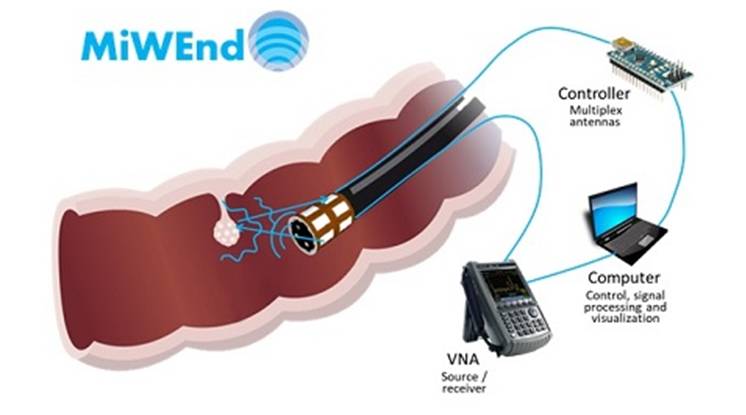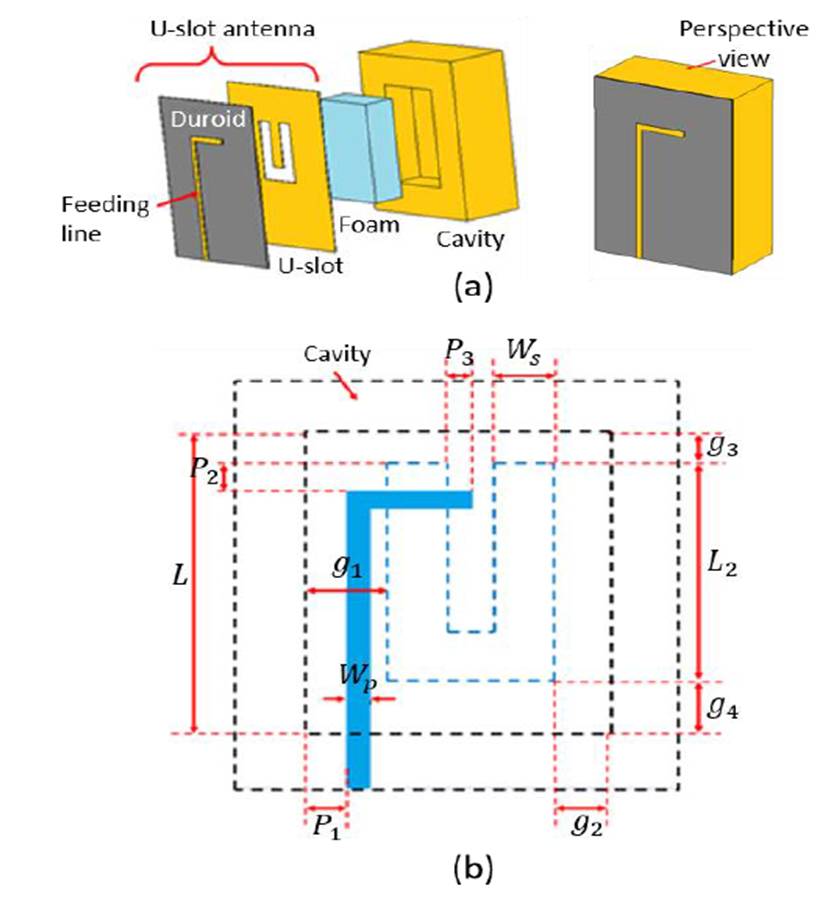The project MiWendo moves into its transfer and innovation phase
With a new study that shows the design of a compact applicator of antennas for a microwave colonoscopy system. An article published by members of the MedTech Research Unit, with Marta Guardiola as first author, in IEEE Transactions on Antennas and Propagation.

Colorectal cancer is easily prevented by the early detection and removal of polyps, which are precursors of cancer. Currently, the most effective test is colonoscopy, but still 22% of polyps go undetected due to visualization limitations.
MiWEndo, a project in its transfer and innovation phase, could improve the results of colonoscopy for the early detection and prevention of colorectal cancer using microwave imaging. Now, the latest breakthroughs in the proof of concept of the MiWEndo project are being presented.
The presentation of the design of a compact applicator for a microwave colonoscopy system. The applicator consists of two cylindrical groups of eight antennas that is attached to the tip of a conventional colonoscopy tube
“Previously, we showed that microwaves were able automatically to detect and differentiate malignant polyps from healthy colon mucosa”, says Marta Guardiola, first author of the article. “In a study published in May 2018 in the journal Medical Physics, we showed the potential of microwave imaging as a complementary method for detecting polyps and cancerous tissue in the colon”, she explains. Microwave imaging aims to determine the dielectric properties of the tissue from its response to an incident electric field generated by an applicator.

The latest developments in the MiWEndo project were published on 31 January in the advanced edition of the journal IEEE Transactions on Antennas and Propagation by the research groups: Sensing in Physiology and Biomedicine (Physense) and Simulation, Imaging and Modelling for Biomedical Systems (SiMBioSys), both groups within the BCN MedTech research unit of the Department of Information and Communication Technologies (DTIC) at UPF, in collaboration with CommSensLab (UPC) and Hospital Clinic de Barcelona.
The article presents the design of a compact applicator for a microwave colonoscopy system. The applicator consists of two cylindrical groups of eight antennas that is attached to the tip of a conventional colonoscopy tube. “The design presented here is a proof-of-concept of an applicator comprising a set of U-slot transmitter and receiver antennas fed by an L-shaped microstrip line”, explains Guardiola. The antennas are low profile and present a high isolation at 8 GHz. The work shows the operation of the antenna evaluated by simulations and experimental tests with a model consisting of different liquids.
The research is the result of the work by Marta Guardiola; Kahina Djafri, Mouloud Challal, University M’Hamed Bougara (Algeria); Miguel A. González Ballester (ICREA); Gloria Fernandez-Esparrach (IDIBAPS, CIBERehd); Òscar Càmara and Jordi Romeu (UPC). The project is supported by the Knowledge Industry-Product programme of the Government of Catalonia, co-funded by the European Regional Development Fund (ERDF).
Reference work:
Marta Guardiola, Kahina Djafri, Mouloud Challal, Miguel A. Gonzalez Ballester, Gloria Fernandez-Esparrach, Oscar Camara, Jordi Romeu (2019), “Design and Evaluation of an Antenna Applicator for a Microwave Còlonoscopy System” IEEE Transactions on Antennas and Propagation, 31 de gener. DOI: 10.1109/TAP.2019.2896703



